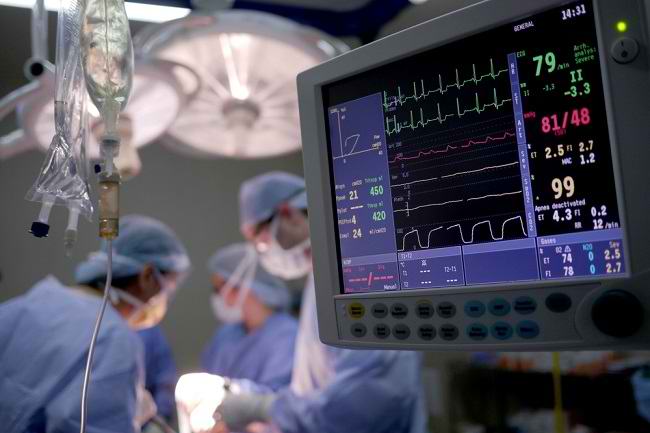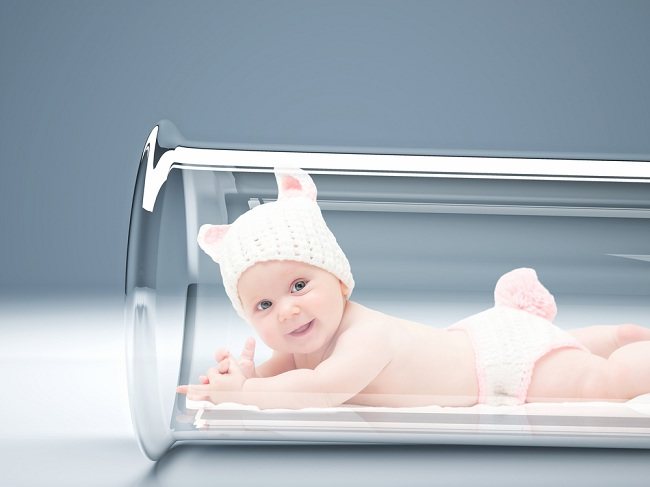Hearing a baby's cry during labor is one of the happiest moments for a mother. However, in some circumstances, babies may not cry when they are born you know, Bun. What are the causes? Check out the following reviews.
While in the womb, the baby breathes through the umbilical cord which is connected directly to the mother's body. And after birth, the baby will use the lungs to breathe. now, the baby's lungs will begin to expand to breathe when he cries when he is born.

Reasons Babies Don't Cry at Birth
Normally, babies start breathing with their lungs in the first ten seconds after birth. At this time, the baby is adapting to the environment outside the womb which is something new for him. To help the development of the lungs, the baby will cry immediately after birth.
However, there are several conditions that cause a baby not to cry at birth, including:
Asphyxia
One of the causes of babies not crying at birth is asphyxia. This condition occurs when the baby does not get enough oxygen during the birth process.
Some of the causes of asphyxia in newborns are:
- Blockages and obstructions in the baby's airway, for example by mucus, amniotic fluid, and meconium.
- Anemia when the baby is still in the womb. Anemia will cause a lack of oxygen and nutrients to the tissues, including the respiratory system.
- The birthing process takes a very long time.
- The placenta is separated from the uterus too quickly, so the baby is no longer getting oxygen in the womb.
To assess the condition of the newborn, the doctor will use the APGAR score. APGAR score 3-5 is an indicator that the baby has asphyxia. This is a dangerous condition, because if not treated, it can cause brain damage and death.
Born prematurely
Babies are considered premature if born before 37 weeks of gestation. Premature babies are more at risk for various health complications after birth. One of them is disorders of the lungs.
Normally, new fetal lung development is complete at the gestational age of over 36 weeks. Babies who are born prematurely before their lungs are fully formed may cry late or don't cry at birth, because their lungs cannot expand properly.
Amniotic fluid poisoning
Normal amniotic fluid is clear or slightly yellowish. However, this fluid can turn green if it is mixed with dark green meconium (baby's first stool).
Amniotic fluid has an important role, namely to help the fetus move, maintain the temperature around the fetus, and protect the fetus from impact or injury. If the amniotic fluid is contaminated with meconium and swallowed or inhaled by the fetus, infection of the respiratory tract and lungs of the fetus can occur. This condition can cause the baby to not cry at birth.
Mother's Medical Conditions Can Cause Baby Not to Cry at Birth
In addition to the baby's medical condition, the mother's health condition can also contribute to causing the baby not to cry at birth, for example:
Preeclampsia
Preeclampsia is a pregnancy complication characterized by hypertension (high blood pressure) and signs of damage to organs, such as the kidneys. Preeclampsia requires immediate medical attention, because of the risk of developing into eclampsia which is dangerous for both mother and fetus.
Preeclampsia can block blood flow to the placenta, causing the fetus to be deprived of oxygen and nutrients. When this happens, the baby may not cry at birth.
Diabetes during pregnancy
Diabetes during pregnancy is also known as gestational diabetes. In this condition, the body of pregnant women is unable to control the level of sugar in the blood, so that blood sugar levels become high.
High blood sugar levels in the body of pregnant women can harm the fetus. One of the dangers is causing respiratory problems in babies that make babies not cry when they are born.
Taking certain drugs
Certain drugs, narcotics (such as marijuana and heroin), herbal drugs whose benefits are not yet clear, beverages containing alcohol or caffeine, and ingredients used in aerosolized drugs can also cause health problems for the fetus, including the respiratory system.
That is why it is recommended that you consult with your doctor first before taking any medications or supplements during pregnancy.
Babies not crying when they are born is not a normal condition and need to get help in the form of resuscitation by a doctor immediately. To prevent this, Mothers need to do regular pregnancy check-ups to the obstetrician, so that the condition of the Little One can be monitored properly.









